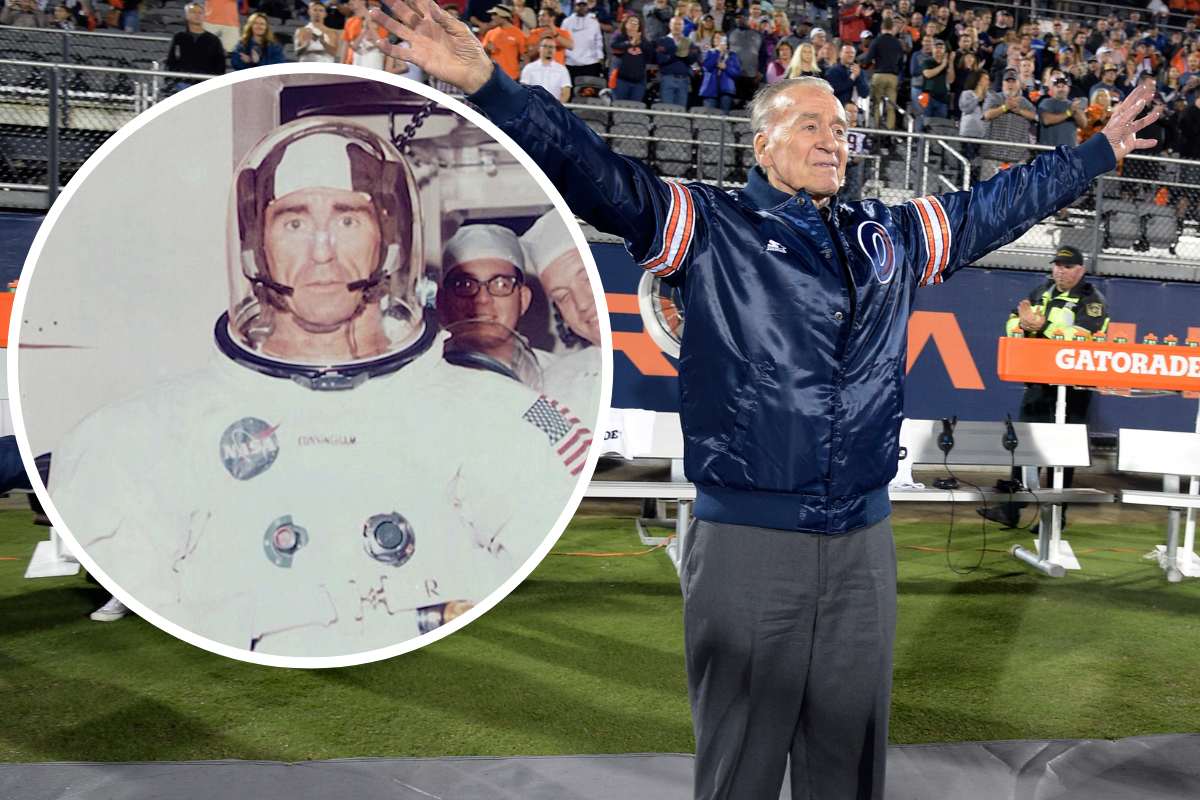NASA said that retired astronaut Walter Cunningham, who was the pilot of the first crewed flight in the Apollo programme, died early Tuesday morning. He was 90 years old.
As a member of NASA’s third astronaut class, Cunningham was one of the first people to take part in the human spaceflight programme. He joined NASA in 1963. He was chosen to be the pilot of Apollo 7, which was the first crewed mission of the NASA programme and the first time people set foot on the moon.
In a statement shared by NASA, the Cunningham family said, “We would like to express our deep gratitude for the man that he was: a patriot, an explorer, a pilot, an astronaut, a husband, a brother, and a father.” “The world has lost another true hero, and we will miss him dearly.”
The Apollo 7 mission took off in 1968 and lasted about 11 days. The crew went into orbit on what was basically a test flight to see if the Apollo capsule could meet up with another spacecraft in orbit.
If it could do that, it would open the way for future missions to go deeper into space. NASA says that it was also the first time Americans were shown on TV while they were in space.
#Apollo7
Jan 3,2023
Apollo Astronaut Walter Cunningham Dies at 90
Former astronaut Walter Cunningham, who flew into space on Apollo 7, the first flight with crew in NASA’s Apollo Program, died early Tuesday morning in Houston.
My condolences to the family and friends😥#Apollo50 pic.twitter.com/NIdfgJtV4D— Rolf (@Rolf__Becker) January 4, 2023
Wally Schirra and Donn Eisele were also on the Apollo 7 crew, but Cunningham was the only one who still lived. Cunningham was 36 years old when the Apollo 7 mission took off.
He was born in Creston, Iowa, and got a bachelor’s degree in physics with honours and a master’s degree in physics with honours from the University of California at Los Angeles.
In 1999, he talked to NASA’s Oral History Office about his career path and what drove him to do what he did. “I’m one of those people that never really looked back. I only recall that when someone asked me after I became an astronaut,” Cunningham said.
“All I remember is just kind of keeping my nose to the grindstone and wanting to do the best I could as — I didn’t realise at the time, but that was because I always wanted to be better prepared for the next step. I’ve always been looking to the future. I don’t live in the past.”
Cunningham only went into space once, but he went on to lead NASA’s Skylab programme. Skylab was the first U.S. space station, and it orbited Earth from 1973 to 1979.
Have a look at:
- Uche Nwaneri a Former Jacksonville Jaguars Player Has Died at Age 38
- Off-Roading Icon Robbie Pierce Passes Away at 63
According to his official NASA biography, Cunningham joined the US Navy in 1952 and started training as a pilot. He then served as a fighter pilot with the US Marine Corps on 54 missions in Korea.
“The only thing I can ever recall doing specifically to become an astronaut because I looked at it that I had become one of, if not the best, fighter pilot in the world,” Cunningham said in the interview with NASA’s Oral History Office.
NASA says that Cunningham also got a PhD in physics from UCLA, but he didn’t finish his thesis. Later, in 1974, he finished an advanced management programme at the Harvard Graduate School of Business.
No recovery from this flight! Bidding a fond farewell to #Apollo7 Lunar Module Pilot, Astronaut Ronnie Walter Cunningham as he travels through #Space (for the 2nd time) to the great beyond. Rest in glory, pioneering spacefarer! Image courtesy Ed Hengeveld @NASAhistory #NASA https://t.co/Er8N51rrF7 pic.twitter.com/LtQklZ7nEC
— Vikash Sananda (@VikashSananda) January 4, 2023
Before he joined the astronaut corps, he worked as a physicist for the nonprofit Rand Corporation, which is a military think tank. After he left the space agency, Cunningham took on many different jobs in the private sector.
According to his NASA biography, he worked as an executive at a number of development companies, was a consultant for new businesses, started his own business and invested in other businesses. Eventually, he hosted a radio talk show.
In later years, Cunningham also became a vocal critic of the most common ideas about how humans affect climate change… Follow us only on Lee Daily for more news like this.
